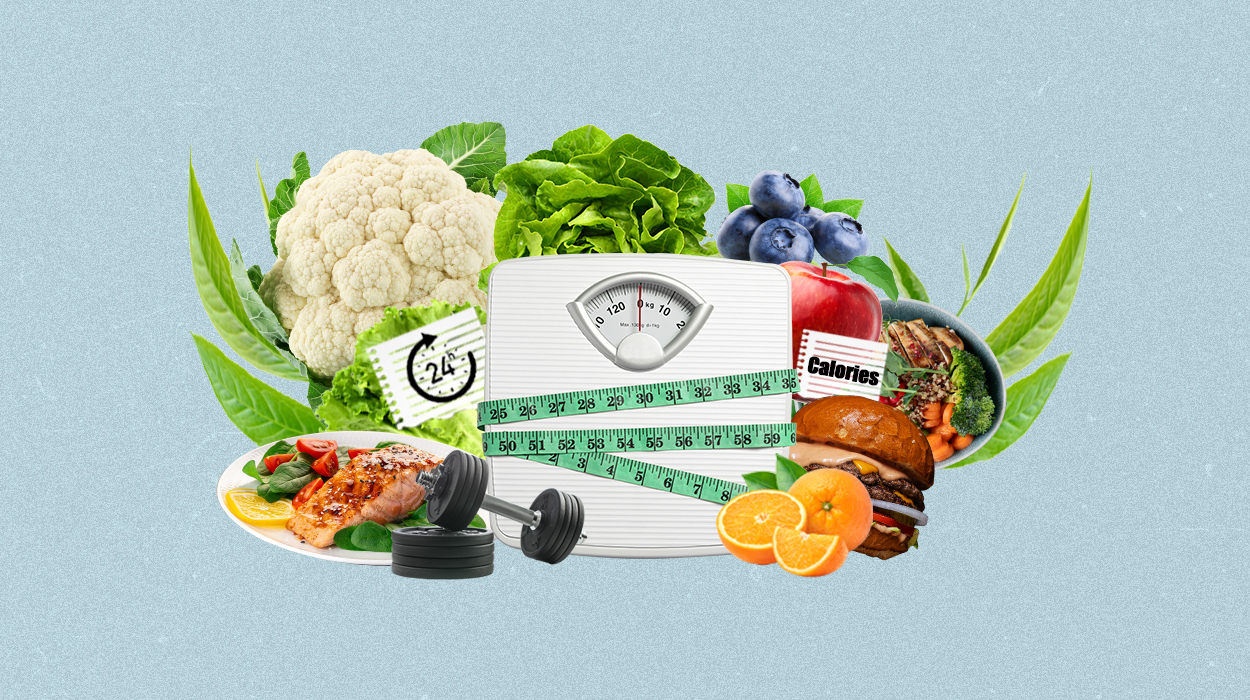Losing weight is a common goal for many people, but figuring out how to achieve it can be daunting. One key factor in weight loss[1] is calorie intake. Consuming too many calories can lead to weight gain while eating too few can cause the body to hold onto fat as a survival mechanism. Therefore, it’s important to determine how many calories you should eat to lose weight. Factors such as age, gender, weight, height, and activity level can all play a role in determining your daily caloric needs. By creating a calorie deficit through a combination of diet and exercise, you can lose weight in a sustainable and healthy way. In this article, we will explore how to calculate your recommended calorie intake for weight loss and provide tips for achieving your weight loss goals while maintaining good nutrition and overall health.
How Many Calories Should I Eat To Lose Weight?
The number of calories people should eat to lose weight varies based on factors like age, sex, weight, height, and activity level. However, on average, a daily calorie deficit of 500 to 1000 calories is recommended for safe and sustainable weight loss, which translates to consuming 1200 to 1500 calories for women and 1500 to 1800 calories for men. It’s important to consult a registered dietitian or healthcare professional to determine the appropriate caloric intake for your specific needs and goals.
Factors That Influence How Many Calories You Should Eat

Several factors can influence how many calories[2] you should eat to achieve your weight loss or weight maintenance goals. These factors include:
- Age[3]: As you age, your metabolism slows down, which means you burn fewer calories at rest. Therefore, older individuals may require fewer calories than younger individuals.
- Gender[4]: Men generally require more calories than women due to their higher muscle mass and greater energy expenditure.
- Body size and composition[5]: Larger bodies require more calories to maintain their weight, and individuals with higher muscle mass require more calories than those with lower muscle mass.
- Activity level[6]: Individuals who are more physically active burn more calories and therefore require more calories to maintain their weight.
- Health status: Certain health conditions, such as hypothyroidism or diabetes, can affect your metabolism and require adjustments to your calorie intake.
- Genetics[7]: Some individuals may have a genetic predisposition to a slower metabolism or a greater propensity for weight gain, which may require adjustments to their calorie intake.
- Medications[8]: Some medications, such as antidepressants or corticosteroids, can affect your metabolism and require adjustments to your calorie intake.
- Dieting history[9]: If you have a history of yo-yo dieting or extreme calorie restriction, your metabolism may have slowed down, requiring adjustments to your calorie intake.
To determine how many calories you should eat, it is important to consider these factors and work with a healthcare professional or registered dietitian to develop a personalized plan that meets your individual needs and goals.
Calculate Calories Using Weight Loss Calculators
Weight loss calculators can be a useful tool to estimate how many calories you should consume to achieve your weight loss goals. However, it’s important to remember that these calculators are just estimates, and your actual calorie needs may vary depending on your factors.
To use a weight loss calculator, you typically input information such as your age, gender, height, activity level, and weight loss goal. Based on this information, the calculator will estimate how many calories you should consume daily to achieve your goal.
For example, if a weight loss calculator estimates that you should consume 1,500 calories per day to achieve your weight loss goal, you should aim to consume 1,500 calories or fewer each day. It’s important to choose nutrient-dense foods that provide essential vitamins and minerals while also being low in calories.
It’s also important to note that weight loss calculators should not be used as the sole determinant of your calorie needs. Working with a healthcare professional or registered dietitian can help you develop a personalized plan that takes into account your factors and goals. Additionally, combining a healthy diet with regular physical activity is crucial to achieve and maintain weight loss.
Benefits Of Counting Calories

Counting calories can offer several benefits for individuals trying to manage their weight and improve their overall health. Some of the critical benefits of counting calories include the following:
- Increased awareness: Counting calories can help individuals become more aware of what they eat and how much they consume. This can help individuals make better food choices and practice portion control.
- Effective weight management: Counting calories can be an effective weight loss and management tool. By tracking calorie intake, individuals can create a calorie deficit necessary for weight loss.
- Flexibility: Counting calories allows for flexibility in food choices. As long as an individual stays within their daily calorie limit, they can consume a variety of foods.
- Improved nutrition: Counting calories can also help individuals improve their nutrition. By tracking the amount of protein, carbohydrates, and fat in their diet, individuals can make adjustments to ensure they are meeting their daily nutrient needs.
- Accountability: Counting calories can provide a sense of accountability for individuals trying to change their diet. By tracking their calorie intake, individuals can see where they may be overindulging and make adjustments accordingly.
- Long-term habit formation: Counting calories can help individuals develop long-term habits for a healthy diet and lifestyle. By practicing portion control and making healthier food choices, individuals can improve their overall health and reduce their risk of chronic diseases.
Overall, counting calories can be a helpful tool for individuals looking to manage their weight and improve their health. However, it’s important to remember that calorie counting should be done in moderation and with other healthy habits, such as regular physical activity and a balanced diet.
Ways To Reduce Calorie Intake
Reducing calorie intake is a key component of weight loss and weight management. Here are some effective ways to reduce calorie intake:
- Eat more protein: Protein is a nutrient that helps to increase feelings of fullness and reduce hunger. Including protein in meals and snacks can help individuals eat fewer calories overall.
- Choose high-fiber foods: Foods high in fiber, such as fruits, vegetables, and whole grains, can help individuals feel full and satisfied with fewer calories.
- Limit added sugars: Foods and beverages high in added sugars can contribute a significant amount of calories to the diet. Limiting or avoiding these foods can reduce calorie intake.
- Drink water: Drinking water instead of high-calorie beverages like soda or juice can significantly reduce calorie intake.
- Use smaller plates: Smaller plates can help individuals practice portion control and consume fewer calories.
- Cook at home: Preparing meals at home allows individuals to control the ingredients and portion sizes, which can help to reduce calorie intake.
- Avoid processed foods: Processed foods are high in calories, sugar, and unhealthy fats. Choosing whole, unprocessed foods can help to reduce calorie intake and improve overall health.
- Snack mindfully: Snacking can contribute a significant amount of calories to the diet. Choosing healthy, low-calorie snacks and practicing mindful eating can help individuals reduce calorie intake.
Reducing calorie intake can be achieved through healthy food choices, portion control, and mindful eating. By making small, sustainable changes to their diet, individuals can successfully manage their weight and improve their overall health.
Conclusion
In conclusion, managing calorie intake is vital to weight loss, weight management, and overall health. Individuals can successfully reduce calorie intake and achieve their desired outcomes by understanding how many calories they should consume based on their needs and goals and making mindful food choices, portion control, and healthy lifestyle habits. It’s also important to remember that while calorie counting can be a helpful tool for weight management, it’s not the only factor to consider in achieving a healthy, balanced diet. Regular physical activity, adequate sleep, and stress management are essential components of a healthy lifestyle.
Frequently Asked Questions
Calorie counting can be a helpful tool for weight loss, but it’s not the only factor to consider. It’s important to make healthy food choices and practice portion control, and regular physical activity is also crucial for weight loss.
The number of calories a person should consume in a day depends on several factors, including age, gender, height, weight, and activity level. Online calculators can provide a rough estimate, but it’s best to consult a healthcare professional or registered dietitian for personalized recommendations.
Yes, it’s possible to lose weight without counting calories. Individuals can create a calorie deficit and achieve their weight loss goals by making healthy food choices, practicing portion control, and incorporating regular physical activity.
No, all calories are not created equal. The type and quality of food consumed can impact overall health and weight management. For example, foods high in fiber and protein can help individuals feel full and satisfied, while sugary and processed foods can lead to overconsumption and weight gain.
Some healthy ways to reduce calorie intake include practicing portion control, choosing nutrient-dense foods, incorporating more fruits and vegetables into meals, and limiting sugary and processed foods.
Consuming too few calories can lead to nutrient deficiencies and negatively impact overall health. Consuming enough calories is essential to meet the body’s energy needs and support overall health.
Consuming too few calories can cause the body to enter a state of starvation mode, leading to weight gain in the long run. Consuming enough calories is important to support the body’s energy needs and prevent adverse health outcomes.
Calorie counting can be a helpful tool for weight maintenance, but it’s not the only factor to consider. It’s important to continue practicing healthy food choices, portion control, and regular physical activity to maintain weight loss and prevent weight gain.
 Expert's opinion
Expert's opinion
